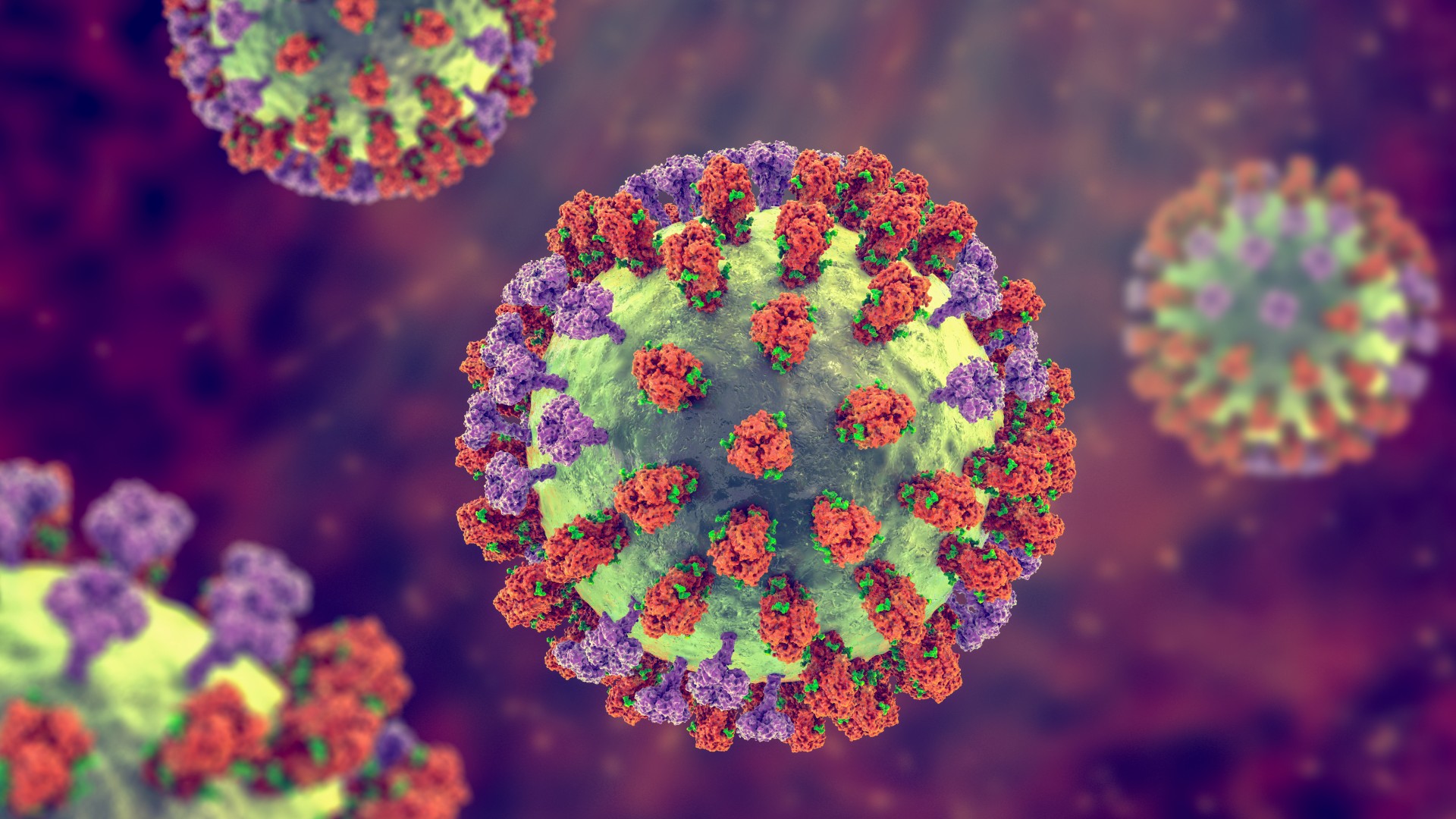Is it too late to get a flu shot?
Is it ever too late in the season to get a flu shot? Here's what experts have to say.

Each year, as fall brings shorter, colder days to the Northern Hemisphere, we're reminded to get vaccinated against the flu, or influenza. In the U.S., the Centers for Disease Control and Prevention (CDC) recommends that everyone over 6 months old receive a flu shot every year.
But is there a time limit on getting your flu shot? Although it's best to get vaccinated before the season kicks off in earnest, it's still beneficial to get one toward the end of the season, two infectious-disease experts told Live Science. That advice may be even more relevant as the 2024-2025 flu season shapes up to be particularly "high-severity", according to the CDC. That's because the strains of the flu circulating this season are causing more complications and affecting young children more than usual.
Related: How do people die of the flu?
Normally, flu vaccines become available in late summer. Specific groups, such as pregnant people in their third trimesters, might consider vaccination in the summer. But the CDC recommends that most eligible people get vaccinated in the fall, by the end of October, as this is when cases begin to rise.
"In the U.S., we often say to get vaccinated around October, because that's when cases start going up and we know that the flu vaccine gives you good protection over a certain period of time," Dr. Sabrina Assoumou, an associate professor of medicine at Boston University and an attending physician at Boston Medical Center, told Live Science.
But if you miss that time window for some reason, you should still get a flu shot.
"Flu season typically continues through March, and it generally takes about two weeks after getting a flu shot for immunity to start kicking in," Dr. Daniel Kuritzkes, chief of the Division of Infectious Diseases at Brigham and Women's Hospital in Boston, told Live Science in an email. So, if you haven't been vaccinated yet, it still makes sense to do so through the end of February, and maybe even into early March, he said.
Get the world’s most fascinating discoveries delivered straight to your inbox.
There would also be "no harm" in getting vaccinated after March or April, considering that influenza viruses circulate all year round, Kuritzkes said. However, practically speaking, the risk of catching flu in the spring or summer is "so low" that health care professionals don't generally focus on vaccinations once flu season is over, he said.
If you haven't gotten sick by January, it may be tempting to think, "Oh, the holidays are done; I've dodged a bullet," Assoumou said. However, cases can peak as late as February and still occur later in flu season. The later you get vaccinated, the shorter your window of available protection for that particular flu season, Assoumou added.
Notably, the peak of flu season has been difficult to predict in recent years due to COVID-19.
Flu transmission most often peaks in February in the U.S., but the COVID-19 pandemic temporarily disrupted the timing. For instance, in 2020, flu transmission reached historically low levels. Between 2021 and 2022, flu infections began to rise again, peaking in late December 2021 then again in April 2022, but transmission rates stayed high until mid-June. Then, between 2022 and 2023, transmission peaked in late November and early December. In 2024 and 2025, flu transmission seems to have returned to its normal timeline, with high transmission recorded from late December through February.
This suggests that "we're moving back towards more typical patterns in terms of influenza epidemiology," Kuritzkes said. Therefore, getting a flu shot in the fall continues to make the most sense, he said.
But what if you've already had the flu this season? Is it still worth getting vaccinated?
Although it may seem counterintuitive, experts say yes, you should still get a flu shot. That's because many strains of influenza circulate each year. These strains fall into two broad categories — influenza A and influenza B — that are responsible for seasonal epidemics of the disease.
"For reasons we don't fully understand, in a typical year the majority of cases seen early in flu season tend to be influenza A, whereas cases due to influenza B are more common later in the season," in February and March, Kuritzkes said.
"Therefore, an unvaccinated person who gets flu in December or January from one type of influenza could still be susceptible to catching flu again later in the season from the other type," he said.
The annual flu vaccine is designed to provide protection against the major strains of influenza that are expected to circulate in that particular season. Flu vaccines in the U.S. are "trivalent," meaning they protect against three strains. Until the 2024-2025 season, the flu vaccine protected against four strains, but researchers found that one strain had gone extinct.
Even if you still get the flu after being vaccinated, you're much less likely to develop a severe infection or to be hospitalized, Assoumou said. "The role of these vaccines is to convert a severe infection into a mild one," she said. One study found that the 2024-2025 influenza vaccine cut the number of severe flu cases requiring medical treatment in half in vaccinated versus unvaccinated individuals.
The flu can be deadly, so vaccination is really important, Assoumou said. This is especially true for people who are at a heightened risk of flu complications, such as those who are pregnant, over age 65 or have underlying chronic health conditions, such as asthma or heart disease, according to the CDC. A growing body of research also suggests that getting vaccinated against influenza can support cardiovascular health. This may be because severe cases of the flu can trigger new cardiovascular problems or exacerbate existing ones.
Getting the flu vaccine is the "best way to protect yourself and the community," regardless of when you receive it, Assoumou said.
This article is for informational purposes only and is not meant to offer medical advice.
Ever wonder why some people build muscle more easily than others or why freckles come out in the sun? Send us your questions about how the human body works to community@livescience.com with the subject line "Health Desk Q," and you may see your question answered on the website!

Emily is a health news writer based in London, United Kingdom. She holds a bachelor's degree in biology from Durham University and a master's degree in clinical and therapeutic neuroscience from Oxford University. She has worked in science communication, medical writing and as a local news reporter while undertaking NCTJ journalism training with News Associates. In 2018, she was named one of MHP Communications' 30 journalists to watch under 30.
- Marilyn PerkinsContent Manager
You must confirm your public display name before commenting
Please logout and then login again, you will then be prompted to enter your display name.
 Live Science Plus
Live Science Plus






